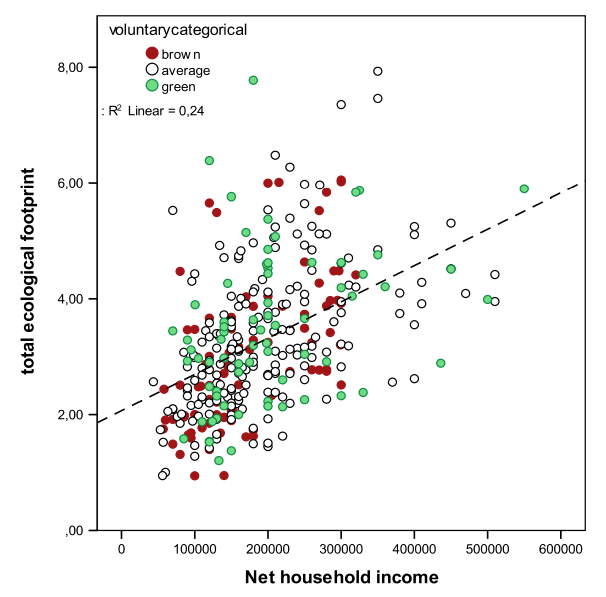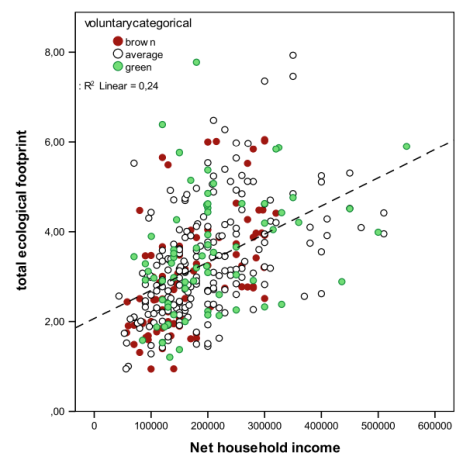People who advocate green behavior aren’t more likely to engage in it, at least in Hungary, according to recent research from Corvinus University in Budapest [PDF].
A survey was carried out in order to measure the difference between the ecological footprint of “green” and “brown” consumers. No significant difference was found between the ecological footprints of the two groups — suggesting that individual proenvironmental attitudes and behaviour do not always reduce the environmental impacts of consumption.
The researcher, Maria Csutora, asked a pool of respondents which of eight behaviors they’d practiced in the preceding month for environmental reasons. Those who’d performed four or more were “green,” none at all, “brown.” Everyone else was labelled “average.” That ranking was then compared to the respondent’s “ecological footprint” (as computed by compounding various measurement tools) and tracked by income level (since higher income-earners tend to have bigger ecological footprints).
The result?
The data reinforce that footprint increases relative to income — but also suggest that a person’s attitudes toward ecological behavior aren’t related to their actual behavior.
A few caveats. First, this is just one study. Second, this is in Hungary. Hungary ranked fourth-highest on the Greendex we reported on last week, compared to the U.S.’ dead last. So it’s possible that American consumers are much more likely to …
Ah, who are we kidding.
Hat tip to Andy Revkin.




